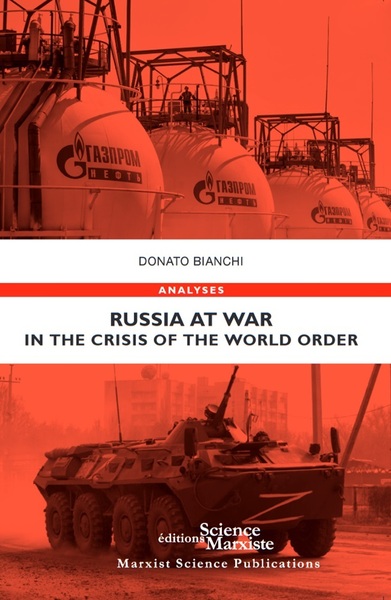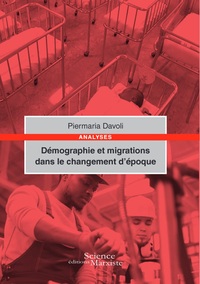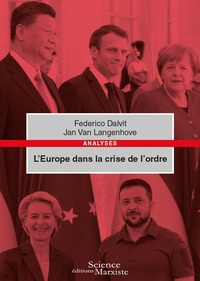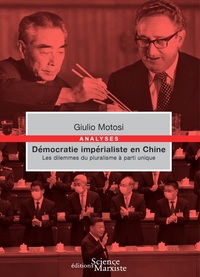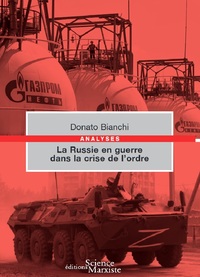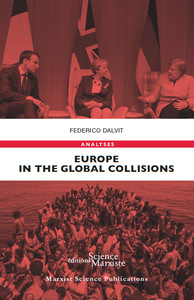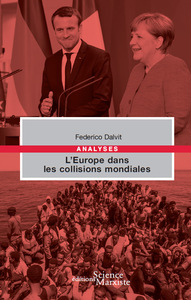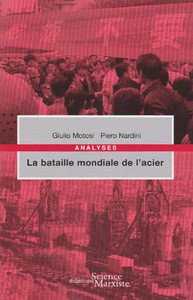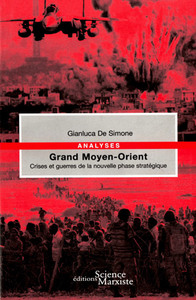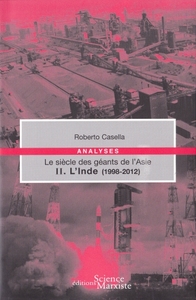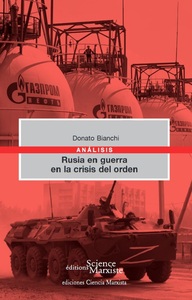Nous utilisons des cookies pour améliorer votre expérience. Pour nous conformer à la nouvelle directive sur la vie privée, nous devons demander votre consentement à l’utilisation de ces cookies. En savoir plus.
Russia at War in the Crisis of the World Order
Science Marxist - EAN : 9782490073597
Édition papier
EAN : 9782490073597
Paru le : 1 juin 2024
22,00 €
20,85 €
Disponible
Pour connaître votre prix et commander, identifiez-vous
Notre engagement qualité
-
 Livraison gratuite
Livraison gratuite
en France sans minimum
de commande -
 Manquants maintenus
Manquants maintenus
en commande
automatiquement -
 Un interlocuteur
Un interlocuteur
unique pour toutes
vos commandes -
 Toutes les licences
Toutes les licences
numériques du marché
au tarif éditeur -
 Assistance téléphonique
Assistance téléphonique
personalisée sur le
numérique -
 Service client
Service client
Du Lundi au vendredi
de 9h à 18h
- EAN13 : 9782490073597
- Réf. éditeur : YRWE
- Collection : ANALYSES
- Editeur : Science Marxist
- Date Parution : 1 juin 2024
- Disponibilite : Disponible
- Barème de remise : NS
- Nombre de pages : 420
- Format : H:215 mm L:140 mm E:31 mm
- Poids : 553gr
-
Résumé :
In May 2008, Dmitry Medvedev became president of Russia, swapping his role with Vladimir Putin who became prime minister. After a few months, in August, the first milestone was a war in Georgia. In May 2012, Putin became president again and, two years later, the ongoing Ukrainian crisis escalated into a real war for the control of Donbas. Meanwhile, Moscow secured Crimea and, with it, the naval base of Sevastopol. The Russian military intervention in Syria began in September 2015. Finally, on February 24th, 2022, the invasion of Ukraine opened a violent and tragic page in European and global relations.
Therefore, Russia at War is not a sensationalist headline, but the synthesis of a characteristic element of Russian politics over the past fifteen years, a thread of its evolution. This is intertwined, and at times entangled, with other elements – one above all is Moscow’s continuous dependence on the energy sector. It is the synthesis of a problem – a restructuring often started but never completed.
A third trend is more purely political and concerns the form of the state organisation. The recurrent simplification is the narrative of Russian authoritarianism as opposed to Western democracy. Given that authoritarian attitudes in the Russian political system are evident, it is more useful to identify their determining factors. For this purpose, the Marxist conception, which refers to “variations and gradations” of democracy, is certainly more effective than others. It is in this framework that the concept of sovereign democracy can be placed, as the specific Russian political form defines itself, in which the link with international relations is not lost.
This is the Russian imperialist state, today engaged in the war for the partition of Ukraine. Moreover, it is a state that has to guarantee the exploitation of 65 million wage earners, who, like their comrades in the western metropolises, increasingly abstain from voting in elections, thus exposing the true nature of elections as an instrument for representing bourgeois interests. With this political form, the Russian ruling class tries to assert its imperialist interests in the era of unprecedented tensions we are now facing. With what results, time will tell.

